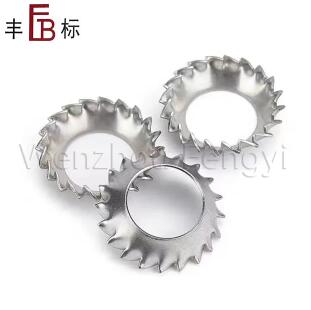How to Choose the Right DIN 6798V Stainless Steel External Countersunk Lock Washer
2024-09-06
Selecting the right lock washer is essential for ensuring the integrity of any mechanical assembly. With so many options available, the DIN 6798V stainless steel external countersunk lock washer stands out due to its combination of durability, reliability, and design. Here’s how you can choose the right one for your specific application.
1. Consider the Environment
The stainless steel construction of DIN 6798V lock washers makes them highly resistant to rust and corrosion. This is especially important for outdoor or marine applications where exposure to moisture or corrosive substances can compromise other materials. If your application will be exposed to harsh environments, stainless steel is a must.
2. Match with Fastener Type
DIN 6798V washers are typically used with countersunk screws or bolts. It’s important to ensure that the washer and the fastener are compatible, especially when working with countersunk designs. The washer should sit flush with the surface when installed, preventing it from sticking out and creating potential snags or hazards.
- Countersunk Design: Ensure the washer matches the fastener’s head shape for a clean installation.
- Bolt Size: Always verify the washer's size matches the bolt or screw diameter.
3. Application of External Teeth
The external teeth are designed to provide a stronger grip and prevent loosening due to vibrations. For applications involving heavy machinery, automotive components, or any environment subject to continuous movement, the external teeth will significantly enhance the connection’s security.
- Vibration Resistance: External teeth prevent rotational movement, ensuring a strong hold even in high-vibration environments.
4. Installation Tips
To ensure optimal performance of the DIN 6798V lock washer, it’s crucial to install it properly:
- Clean the Surface: Ensure both the washer and the surface it contacts are free of debris, oil, or moisture, which can compromise the grip of the external teeth.
- Tighten Correctly: Use the proper torque when tightening bolts or screws. Overtightening can damage the washer, while undertightening can reduce its effectiveness.
5. Industries and Use Cases
DIN 6798V washers are highly versatile, and choosing the right one depends on your specific industry needs:
- Manufacturing: Securing equipment parts to prevent loosening due to operational vibrations.
- Automotive: Ensuring that vital components, such as engine mounts or chassis parts, stay secure during vehicle operation.
- Electrical Applications: Protecting fasteners in environments where electrical components might be subject to movement or vibrations.
Conclusion
The DIN 6798V stainless steel external countersunk lock washer offers both reliability and efficiency in fastening solutions, particularly in environments where corrosion and vibration resistance are required. By considering the environment, the type of fastener, and the intended application, you can ensure that you select the best washer for your project.



